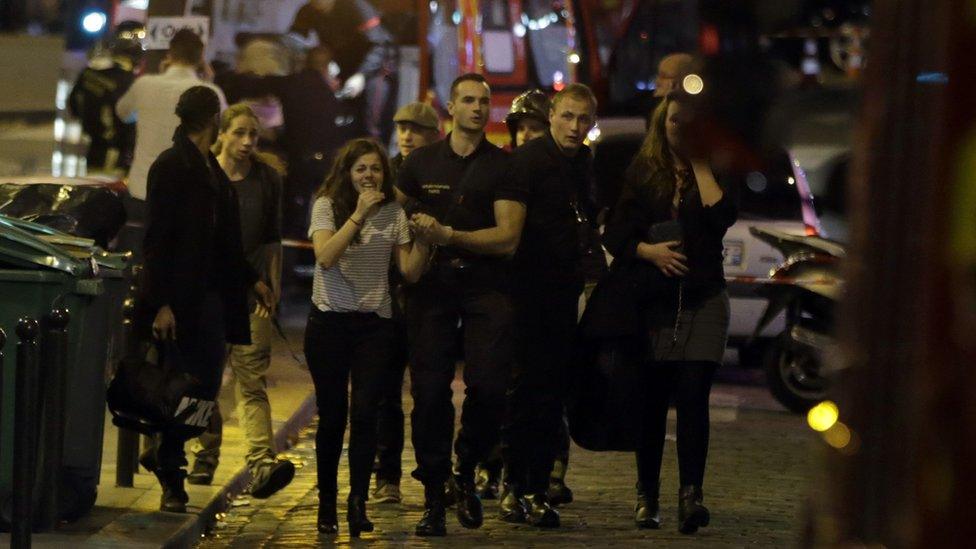France elections: Le Pen says political elite 'crumbling'
- Published
As Lucy Williamson reports, the National Front is ahead in six of the 13 regions
The triumphant leader of the far-right National Front (FN), Marine Le Pen, says French voters rejected the "old political class" in regional elections that put her party top.
Nearly one-third of voters backed the anti-immigration FN, which won in six out of France's 13 regions.
Despite the FN surge, a second round on 13 December will be the decider.
It was the first electoral test since last month's Paris attacks, in which jihadist gunmen killed 130 people.
The nationalist FN got about 28%, ahead of the centre-right Republicans party led by former President Nicolas Sarkozy, which polled just under 27%, and the governing Socialist Party (PS), trailing with 23.5%.
The PS said it was withdrawing from the second round in two regions, in the north and south, to try to block a run-off victory for the FN.
On Twitter, external, Marine Le Pen said both the PS and Republicans "are crumbling" and "the French people are sick and tired of that old political world".
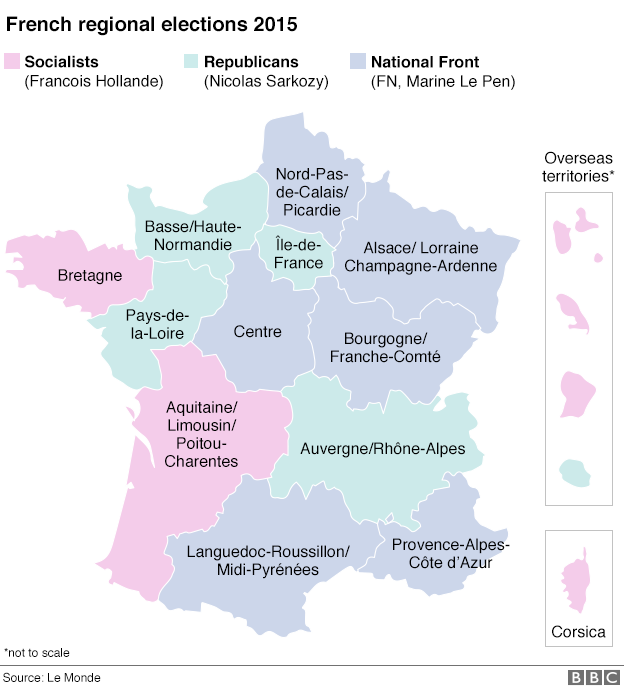
'Ballot fodder'
In a series of interviews she condemned the PS for withdrawing some candidates from the second round, saying the PS was "neither loyal nor democratic" and was "treating its voters like ballot fodder".
The PS candidate in a third region, Alsace-Champagne-Ardenne-Lorraine in eastern France, rejected a call from party leader Jean-Christophe Cambadelis to withdraw in the second round. Jean-Pierre Masseret said he could not be expected to leave 5.5 million people in the hands of a Republican party that had veered to the extreme or an extreme nationalist right.
Mr Sarkozy refused to do any tactical deals with the PS for the second-round ballot.
The result on Sunday was a major blow for Socialist President Francois Hollande, who had seen improved poll ratings after the Paris attacks.
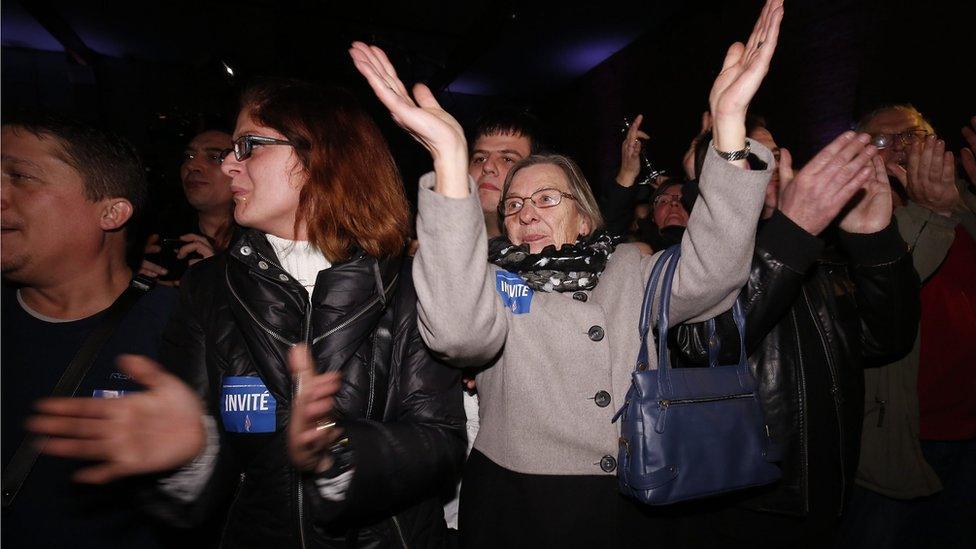
National Front supporters celebrated as the predictions came in
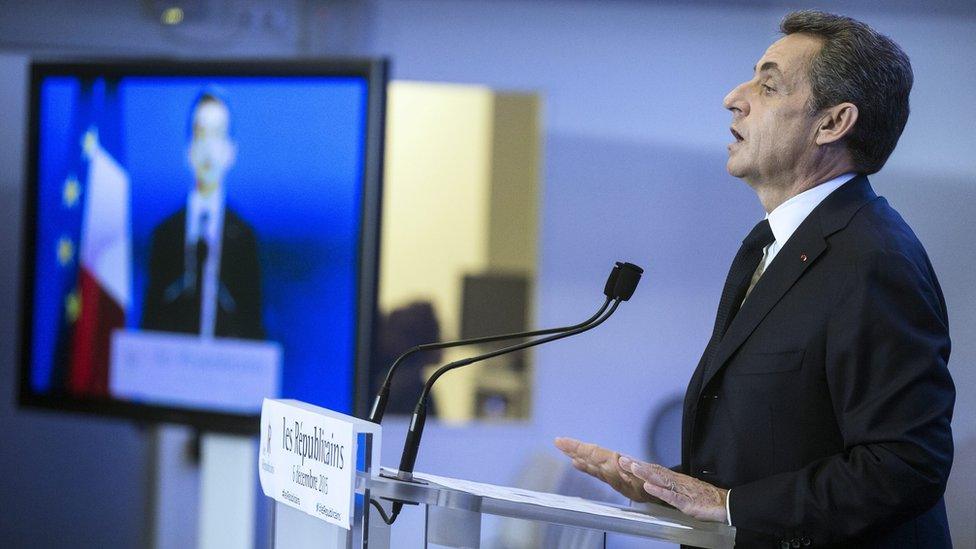
Nicolas Sarkozy ruled out a deal with the Socialists in the second round
'First party of France'
France's new regional authorities have wide powers over local transport, education and economic development.
The vote is also an important test of FN support ahead of the 2017 presidential election.

Analysis: Hugh Schofield, BBC News, Paris
There is a surly anti-establishment mood in France, of which the National Front- a quintessential anti-establishment party - is taking full advantage.
Of course triumph for the FN will not necessarily translate into power.
The regional elections (like most French elections) are in two rounds. Next Sunday, voters may rally around the two main parties.
But in two regions - the north and on the Cote d'Azur - the National Front has smashed the opposition. In a third - Alsace - its chances are very strong. Others are not beyond reach.

Marine Le Pen has distanced the FN from her father Jean-Marie Le Pen, who founded it and has been prosecuted for anti-Semitism. She argues that France cannot take in more Muslim immigrants.
Widespread anxiety about immigration and the fear of further terrorist attacks are believed to have boosted the FN's support.
Marine Le Pen stood in Nord-Pas-de-Calais-Picardie, an economically depressed northern region that used to be a Socialist stronghold.
Her niece Marion Marechal-Le Pen stood in Provence-Alpes-Cote d'Azur in the south. Both won more than 40% of the vote, breaking previous records for the party.
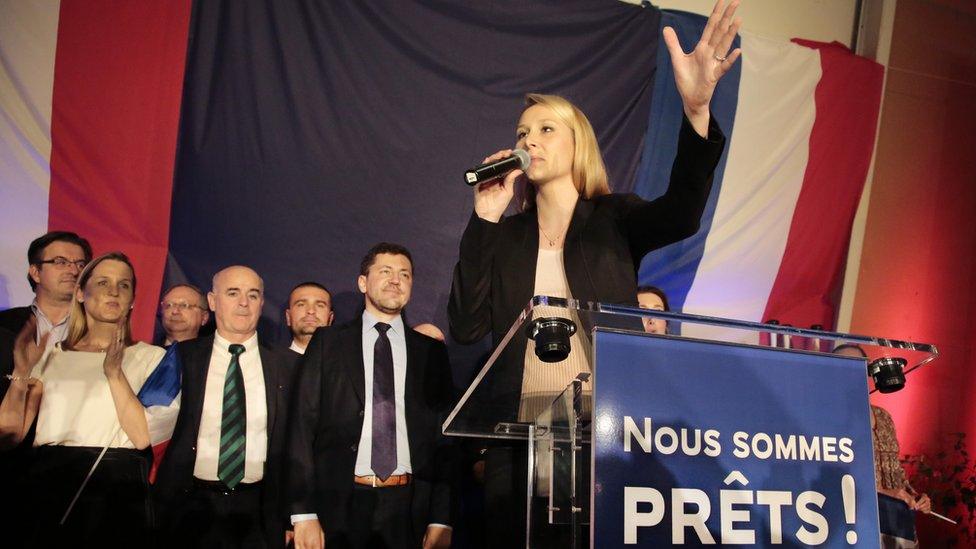
Marion Marechal-Le Pen hailed a "new political generation" replacing the old world
Marine Le Pen called it a "magnificent result" which proved the FN was "without contest the first party of France".
The FN "is putting down roots, structuring itself and steadily winning the confidence of the French people", she told RTL radio.
The FN had previously won European Parliament elections in France and local government elections.
The regional election was held under a state of emergency declared after the Paris attacks, which were claimed by so-called Islamic State militants.
- Published7 December 2015
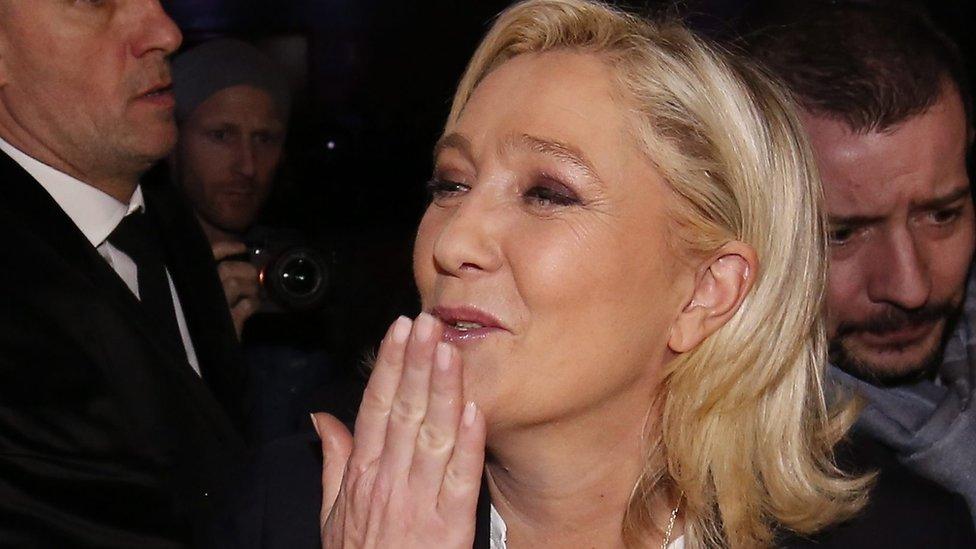
- Published7 December 2015
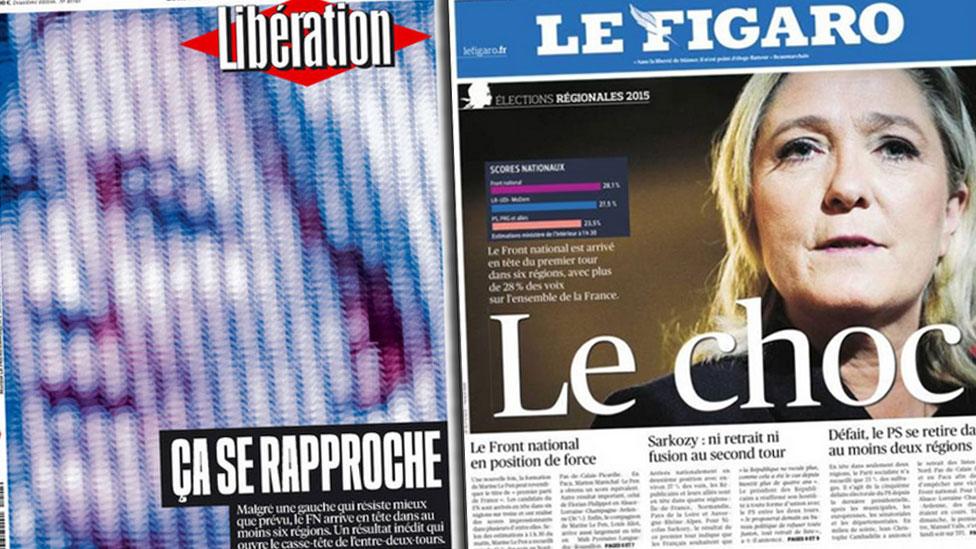
- Published5 December 2015
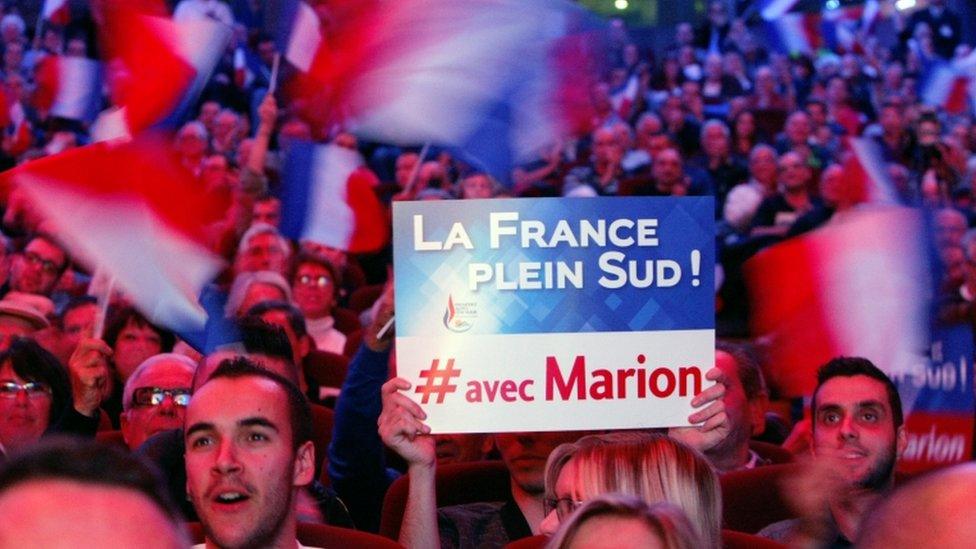
- Published5 December 2015
